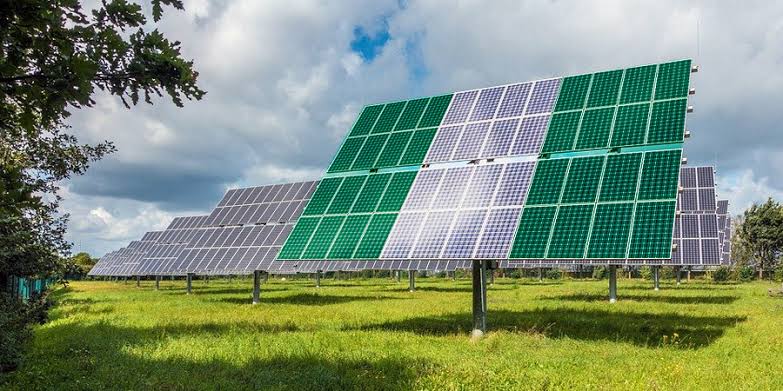The Sahara Group, a prominent energy conglomerate, has underscored the necessity for substantial investments in renewable energy sources in Africa. The group asserts that Africa would require approximately $2.64 trillion, an amount roughly equivalent to its Gross Domestic Product (GDP), to transition to renewable energy for electricity generation by 2050. This pronouncement was made during a workshop organised for the Energy Correspondent Association of Nigeria under the theme “Energy Transition: The Road Not Taken.”
Read also: Middle East, Africa’s gas power plant adds 1.8 GW before COP28
Prioritising Natural Gas and Renewables
Sahara Group predicts that Africa will increasingly adopt natural gas and renewable energy sources for its energy needs in the years to come. Despite this shift, the use of oil is also expected to continue. The conglomerate made these observations in a presentation delivered by Ejiro Gray, Director of Governance and Sustainability at Sahara Group. She emphasised that the required funds would cover the installation of renewable energy sources, as well as the essential infrastructure for energy generation, distribution networks, storage systems, and other associated costs.
Gray pointed out that the immense potential of the African renewable energy market faces several risks at multiple levels, which have thus far deterred many investors from committing capital. These risks are categorised into three levels: macro, industry, and transaction levels.
Addressing Risks at Multiple Levels
Macro Level: This encompasses political risk, relating to events with adverse impacts on investment value. Gray stated, “Macro level comprises political risk which is associated with political events that adversely impact the value of investment.”
Off-taker Risk: Another significant risk is off-taker risk, associated with credit and default risks. Gray explained, “Off-taker risk which involves credit and default risk.”
Currency Risk: A third risk at the macro level is currency risk, linked to volatile foreign exchange rates affecting investment. Gray noted, “Currency risk associated with volatile forex rate that affects investment.”
Industry Level: This category comprises policy issues and risks associated with the industry. Gray stated, “Industry level comprises policy associated with taxes and regulatory policies that have adverse effects on projects.”
Grid and Transmission Risk: Grid and transmission risk is also at the industry level, associated with limitations in grid interconnection. Gray explained, “Grid and transmission risk associated with limitations, interconnection.”
Liquidity Risk: The third risk in this category is liquidity risk, tied to operational liquidity and revenue shortfall issues. Gray noted, “Liquidity risk associated with operational liquidity and revenue shortfall issues.”
Transaction Level: This level includes financing and transaction risks. Gray highlighted, “Transaction level comprises financing risk associated with financing instruments.”
Refinancing Risk: Refinancing risk is a critical concern related to loans. Gray said, “Refinancing risk which bothers on a loan.”
Technical Risk: Finally, at the transaction level, there’s technical risk, associated with a country’s proficiency in structuring and executing transactions. Gray explained, “Technical risk associated with countries’ know-how for structuring and transactions.”
Gray also noted that while fossil fuels, particularly oil, would continue to be the primary source of Africa’s energy demand, there would be a substantial shift towards cleaner and modern energy alternatives. She stated, “While fossil fuel would continue to remain the major source of Africa’s energy demand, particularly through oil, it was expected that there would be a major shift towards a modern and cleaner energy.”
Natural Gas as a Bridge to Clean Energy
Gray emphasised the role of natural gas in transitioning to cleaner energy alternatives. She explained, “Natural gas would now begin to play the role of bridging between more polluting fossil fuels and zero carbon technologies such as wind and solar energy.”
She also discussed the significance of this transition for biomass and coal. She stated, “Biomass and coal are expected to experience the most significant drop-offs in the coming decades.”
Sahara Group is actively contributing to the energy transition by supplying 25 percent of the natural gas currently used in Nigeria. Gray emphasised that the group anticipates Africa’s increasing adoption of natural gas and renewable energy in the years ahead, even as the use of oil remains persistent. She noted, “Africa is expected to embrace more natural gas and renewable energy in coming years even as oil use continues to increase.”
In her concluding remarks, Gray advocated for a comprehensive approach to address the challenges associated with the energy transition. She highlighted key factors, saying, “Gray, while advocating for value chain integration, funding, investment, de-risking, and infrastructure to drive transition, said Sahara Group would continue to make investments along the entire gas value chain from production to transportation to consumption.”
Sahara Group’s vision aligns with the global efforts to transition to sustainable and cleaner energy sources, thereby promoting a greener and more environmentally responsible future for Africa.




